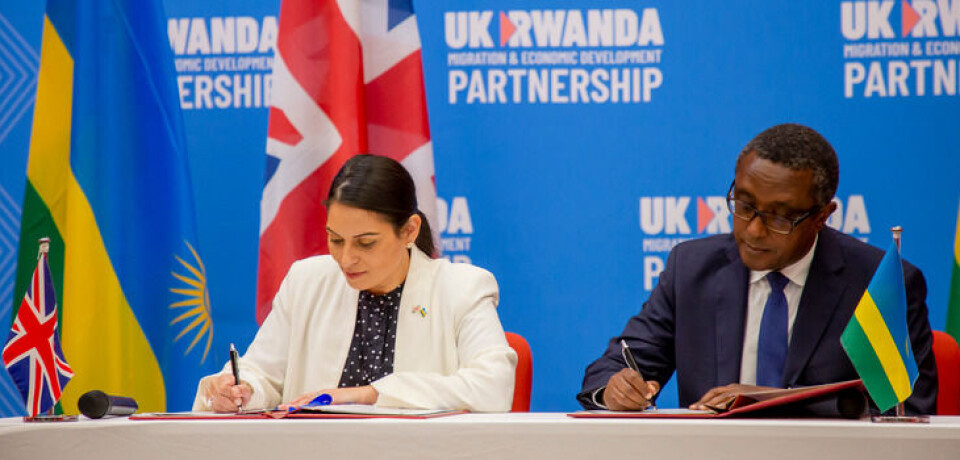Rwanda joined No. 10 Downing Street in faulting the 15 November court ruling that appears to take their joint scheme beyond further redemption, despite it surviving numerous legal challenges since it was first mooted last year. Both parties have signalled readiness to ink a new pact that will primarily address the court’s concerns about the possibility of targeted asylum seekers later being deported from the east African nation back to their countries of origin.
Rwandan authorities were particularly irked by the court’s dismissal of its commitment to preventing that possibility from happening, saying in an official statement that although the ruling was based on the UK’s own judicial system, “we take issue with the conclusion that Rwanda is not a safe third country for asylum seekers and refugees in terms of refoulement”.
While, in its judgement, the UK top court slammed Rwanda for having a “poor human rights record”, the country asserted that it was recognised by the United Nations High Commission for Refugees and other international institutions for its “exemplary treatment of refugees”.
The court said evidence produced during the case proceedings, which Rwanda had failed to challenge convincingly, showed there were “substantial grounds for believing that asylum seekers would face a real risk of ill-treatment by reason of refoulement to their country of origin if they were removed to Rwanda”.
Non-refoulement is an international law principle protecting asylum seekers from forced repatriations to their home countries that may threaten their personal security. The plan to send asylum seekers to Rwanda has been on the drawing board since April 2022 as part of a wider Conservative Party strategy to stem an increasing influx of migrants and asylum seekers entering Britain.
Originally signed by Britain’s then Prime Minister Boris Johnson, the plan has stayed high on the agenda of his successor Rishi Sunak, who represents the same party. Although Rwanda is reported to have already received at least £140-million from the UK government to prepare the groundwork on its end, court disputes have dogged the plan throughout.
An intervention from the European Court of Human Rights (ECHR) prevented the first transfers of asylum seekers in June last year, and the UK Supreme Court petition was in the form of an appeal against an earlier UK High Court ruling that okayed the plan.
Mr Sunak has made clear his intention to get the plan back on track by early 2024 under fresh terms with Rwanda that are consistent with international laws and conventions on refugee rights. He said that, if necessary, he was "prepared to revisit Britain's domestic legal frameworks" in order to align them with the plan and avoid future court rejection. Rwanda meanwhile said in its official statement that a "binding treaty" would now be necessary for the partnership to succeed.
To join Africa Legal's mailing list please click here

